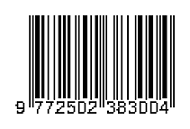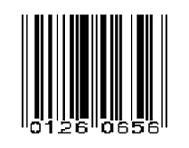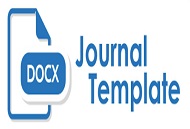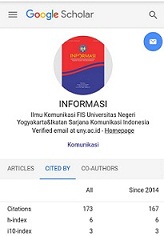A comparative study of BRTV and NTA Maiduguri regarding their compliance with Nigeria Broadcasting Code on religious programming
Musa Usman, University of Maiduguri, Nigeria
Adamkolo Mohammed Ibrahim, SCOPUS ID 57190752549 Department of Mass Communication University of Maiduguri, Nigeria
Abstract
The regulation of broadcast religious programming is a critical challenge the National Broadcasting Commission (NBC) is facing in Nigeria. In Maiduguri, the capital of the north-eastern Nigerian state of Borno where religion forms a core part of the people’s culture, a great deal of Borno Radio Television (BRTV) and Nigerian Television Authority Maiduguri’s (NTA Maiduguri) airtime is allocated to Islamic preaching during the Muslim’s annual Ramadan fasting. However, there is a dearth of research on whether the airtime those broadcast stations allocate to Islamic programming complies with the NBC code on religious programming. This research gap formed the main research question of this study which was conducted during the second quarter of 2019. Primary data were collected using key informant interviews with five personnel from the two broadcast stations and the Maiduguri office of NBC, while secondary data were obtained through the review of official documents. Key findings showed that the airtime allocated to religious programmes exceeded the 10% NBC limit, BRTV allocated more airtime to religious programmes than NTA Maiduguri and Islamic programmes were allocated more airtime than programmes of other religions. Recommendations on how to improve compliance to NBC’s regulations were offered at the end.
Peraturan program siaran keagamaan merupakan tantangan bagi National Broadcasting Commission (NBC)/Komisi Penyiaran Nasional di Nigeria. Maiduguri, ibukota Negara bagian Borno, Nigeria Timur Laut di mana agama merupakan bagian inti dari budaya masyarakat, banyak Radio Televisi Borno (BRTV) dan Otoritas Televisi Nigeria Maiduguri (NTA Maiduguri) mengalokasikan jam tayang untuk khotbah Islam selama Ramadhan. Namun, ada kelangkaan penelitian tentang apakah jam tayang yang disiarkan oleh stasiun-stasiun siaran itu untuk program Islami. Kesenjangan penelitian ini membentuk pertanyaan penelitian utama yang dilakukan selama kuartal kedua 2019. Data penelitian ini dikumpulkan menggunakan wawancara informan kunci dengan lima personel dari keduanya stasiun siaran dan kantor Maiduguri NBC, sementara data sekunder diperoleh melalui telaah dokumen resmi. Temuan penelitian ini menunjukkan bahwa “airtime” (jam tayang) dialokasikan untuk program keagamaan yang melebihi batas 10% NBC, BRTV mengalokasikan lebih banyak “airtime” ke program keagamaan dari NTA Maiduguri dan program Islam dialokasikan lebih banyak “airtime” daripada program agama lain. Implikasi dari penelitian ini adalah perlunya kepatuhan terhadap peraturan NBC.
Keywords
Full Text:
PDFReferences
Adebiyi, R. A. & Salaudeen, K. A. (2016). The changing face of political communication in Nigeria: A do-or-die media game. In D. Wilson (Ed.), Mass media and the electoral process in Nigeria (pp.209-220). Uyo: ACCE.
Adum, A. N. & Ojiakor, O. E. & Nnatu, S. (2019). Party politics, hate speech and the media: A developing society perspective. Journal of Humanities and Social Policy, 5(1), 45-54.
Ahmad, G. & Isa, K. H. (2017). Islamic groups and contestation for religious public space on radio stations in Kano Metropolis. In U. A. Pate & L. Oso (Eds.), Multiculturalism, diversity and reporting conflict in Nigeria. Ibadan: Evans Brothers Limited.
Anifowose, B. O. (2013). Exploring radio as a means of disseminating development messages. Department of Communication and Language Art. University of Ibadan, Ibadan. Nigeria.
Bala, M. (2000). Pluralism and prior restraint on religious communication in Nigeria: Policy versus Praxis. In J. Thierstein & Y. R. Kamalipour (Eds.), Religion, law, and Freedom: A Global Perspective (pp. 98-111). London: Praeger.
Creswell, J. W. & Poth, C. N. (2017). Qualitative inquiry and research design: Choosing among five approaches. New Delhi: Sage Publications.
Damaris P. S. (2006). Then sings my soul’: Gospel music as popular culture in the spiritual lives of Kenyan Pentecostal/Charismatic Christians”. Journal of Religious and Popular Culture, XIV. Retrieved from http://www.usask.ca/relst/jrpc/art14-singsmysoul.html
Dominick, J.R. (2009). The dynamics of mass communication: Media in the digital age (10th ed.). New York: McGraw-Hill.
Falola, T. & Heaton, M. M. (2008). A history of Nigeria. Cambridge: Cambridge University Press.
Goodwin, C. (2009). Research in psychology: Methods and design. Hoboken, NJ.: John Wiley and Sons.
Hackett, R. I. J. (1998). Charismatic/Pentecostal appropriation of media technologies in Nigeria and Ghana. Journal of Religion in Africa, 28(3), 258-277. doi: 10.1163/157006698X00026
Harvey, S. (1999). Broadcasting regulation: On the side of the angels? Retrieved from
http://www.latrobe.edu.au/screeningthepast/firstrelease
Ibrahim, A. M. (2017). Factors affecting ICT usage for the development of small and medium-scale agro-based enterprises in Selangor, Malaysia, (Unpublished master’s thesis), Universiti Putra Malaysia.
Ibrahim, A. M., Pate, U. A., & Usman, A. M. (in press). Silencing the media and chaining the watchdog: Threats to journalists’ safety during elections in Nigeria. In S. Jamal (Ed.), Combatting threats to media freedom and journalists’ safety (ch. 12). Hershey: IGI Global.
Ibrahim, A. M., Yar’Adua, S. M. & Maikaba, B. (2019). More media, less democratisation of public access and participation: A conceptual review of the influence of deregulation and commercialisation on public broadcasting in Nigeria. International Journal of Telecommunications and Information Technology, 3(1), 032-046.
Ihechu, I. P. (2019). Broadcasting and promotion of development in Sub-Saharan Africa. Journal of Development and Communication Studies, 6(1), 48-60.
Ihechu, I. P. & Okugo, U. C. (2013). Broadcasting regulation and broadcasting in Nigeria: An overview of the approaches. Research on Humanities and Social Sciences, 3(2), 12-19. doi: 10.1207/s15327728jmme1104_3
Jeffrey, C. L. (1996). An ethics code postmortem: The National Religious Broadcasters’ EFICOM. Journal of Mass Media Ethics, 11(4), 223-35.
Johannes, H. (2008). Democratization and Islamic Law: The Sharia Conflict in Nigeria, Frankfurt: Campus Verlag.
Lindlof, T. R., & Taylor, B. C. (2002). Qualitative communication research methods, Thousand Oaks, CA: Sage.
Malaolu, P. O. (2012). Media representation and democracy in Africa: ‘Why there are no skyscrapers in Nigeria’ – A critical analysis of UK news media’s representation of Nigeria’s democracy, 1997-2007. (Unpublished doctoral dissertation). University of Sterling, UK.
Marshall, C. & Rossman, G. B. (2014). Designing qualitative research. London: Sage publications.
McBurney, D. & White, T. (2009). Research methods (8th Ed.). Belmont, CA: Wadsworth, Centage Learning.
NBC (2009, September 3). Grant of radio and television network service licences. [Information Memorandum] Abuja: Retrieved from http://www.nbc.gov.org.php?
Nwanze, I. (2003). Broadcasting in Nigeria: Private broadcasting, prospects, challenges, legal aspects. Port Harcourt: Renaissance Communications Ltd.
Okunna, C. (2005 January). Re-inventing media content in Nigeria: Creating a balance between social responsibility and business concern. International Journal of Communication, 2, 88-96.
Owuamalam, E (2006). Introduction to broadcasting. Owerri: Top class Agencies Ltd.
Tijani-Adenle, G. (2019). Women in Nigerian news media: Status, experiences and structures. (Unpublished doctoral thesis), De Montfort University, Leicester, the United Kingdom.
Ukah, A. (2011). Banishing miracles: politics and policies of religious broadcasting in Nigeria. Politics and Religion, 5(1), 39-60.
Van Dijk, T. A. (1993). Principles of critical discourse analysis. Discourse and Society, 4(2), 249-283. doi: 10.1177/0957926593004002006
DOI: https://doi.org/10.21831/informasi.v50i1.29106
Refbacks
- There are currently no refbacks.
Copyright (c) 2020 Adamkolo Mohammed Ibrahim, Ibrahim Uba Yusuf, Musa Usman
Supervised by
Our Journal has been Indexed by:
Informasi by http://journal.uny.ac.id/index.php/informasi is licensed under a Creative Commons Attribution-NonCommercial 4.0 International License.
















